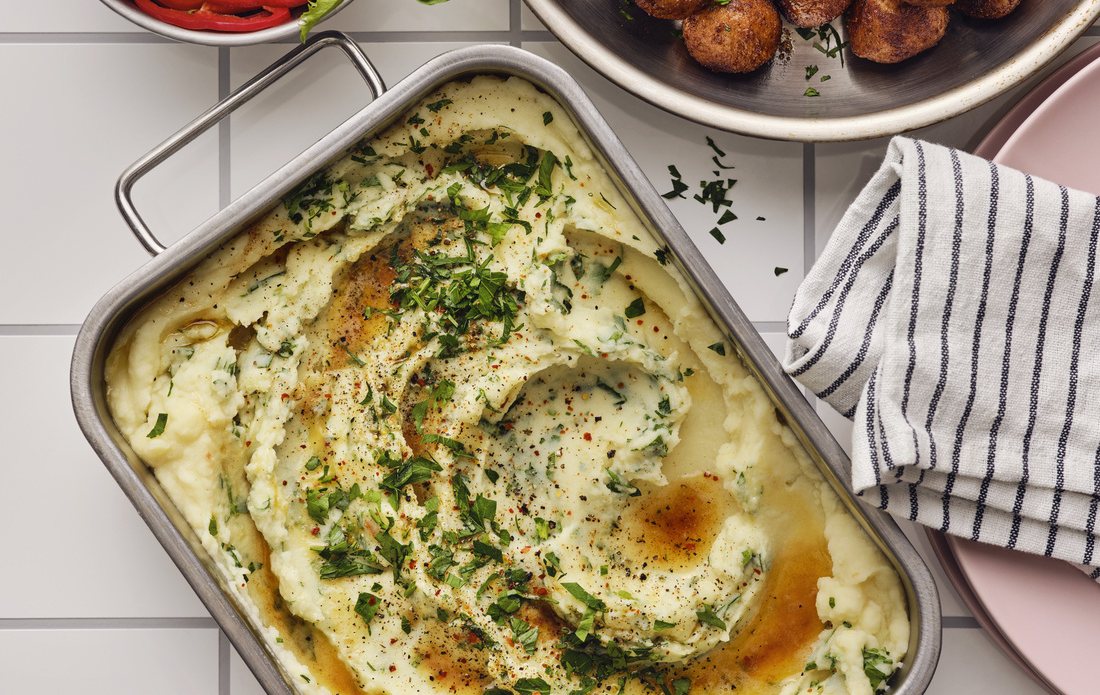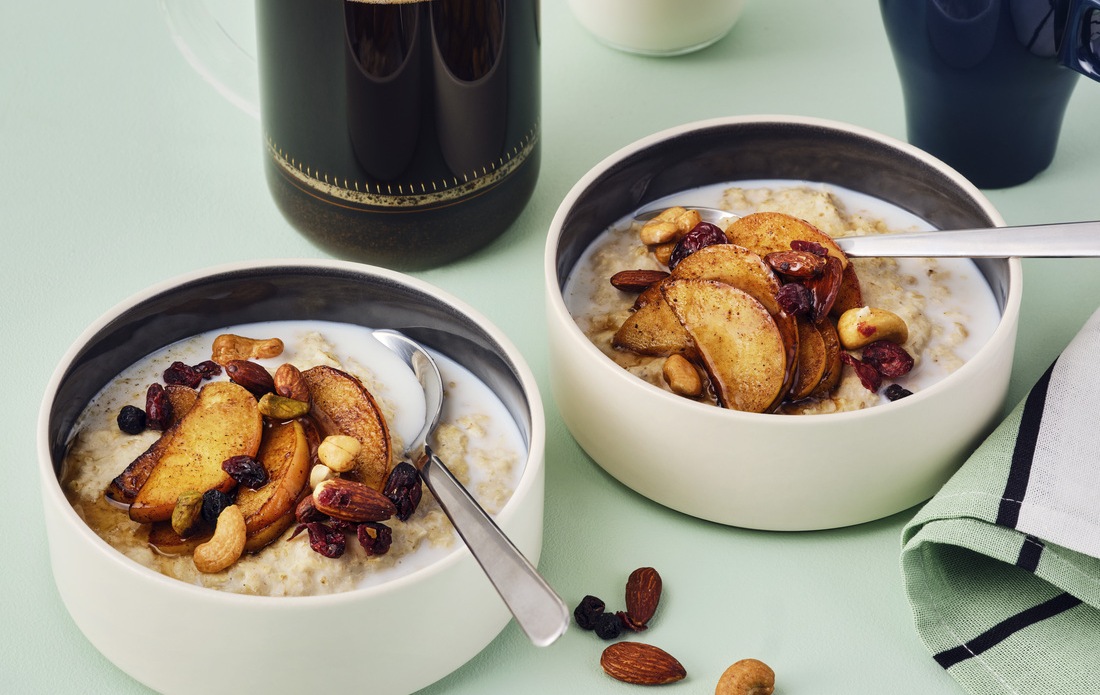List of 8 nutritious and appetizing suhoor menus



Suhoor is an important meal during Ramadan to maintain energy throughout the day. Therefore, choosing a practical, healthy, and nutritious suhoor menu is essential.
The right food can help keep the body energized, maintain hydration, and reduce hunger for longer. With a combination of protein, fiber, and complex carbohydrates, suhoor can remain delicious without requiring complicated preparation.
Here are eight recommended suhoor menus that are not only easy to prepare but also healthy and appetizing to support your fasting.
Read also: 5 clever storage ideas for a small dining room that does it all
Suhoor is not just a meal before fasting but also the key to maintaining energy and endurance throughout the day. With the right suhoor, the body is better prepared for fasting without easily feeling weak or dehydrated.
Therefore, it is crucial to choose foods that contain protein, fiber, and complex carbohydrates to ensure long-lasting energy.
During fasting, the body does not receive food and fluids for hours. Suhoor helps replenish energy reserves and ensures the body stays hydrated.
By consuming nutritious foods and enough water at suhoor, the body can reduce the risk of fatigue, dizziness, or dehydration, which may interfere with daily activities.
High-protein foods help keep you full longer, while fiber supports healthy digestion and prevents constipation.
Meanwhile, complex carbohydrates such as brown rice, whole wheat bread, and oatmeal are digested more slowly than simple carbohydrates.
By combining complex carbohydrates with protein and fiber, the body can stay fit without feeling hungry quickly during fasting.
Here are eight healthy and practical suhoor menu ideas to keep you energized during fasting:
Fried rice can be a delicious and practical suhoor choice if cooked with healthier ingredients. Use minimal oil and add garlic and soy sauce for a savory taste.
To increase its nutritional value, add vegetables such as spinach or tomatoes, which are rich in vitamins and antioxidants.
Chicken soup is an easy-to-digest suhoor menu that warms the body. Chicken, as a protein source, helps maintain muscle mass, while vegetables like carrots, spinach, and tomatoes provide essential vitamins and minerals.
The nutrient-rich broth also helps maintain hydration during fasting.
Spinach is a vegetable rich in iron, which helps prevent fatigue during fasting. By stir-frying it with a little oil and garlic, this menu remains healthy and flavorful.
Additionally, spinach is high in fiber, which is good for digestion and keeps you full longer.
A vegetable omelet is a practical suhoor option because it is high in protein and easy to prepare. Add vegetables such as carrots, green onions, or bell peppers to increase fiber and vitamin intake.
Besides being filling, this menu also helps maintain nutritional balance during fasting without requiring long preparation.
Soy sauce chicken is a protein-rich suhoor menu with a delicious taste. The combination of chicken with soy sauce, garlic, and a bit of ginger creates an appetizing dish.
This menu also pairs well with brown rice or boiled potatoes for a more balanced and nutritious meal.
For those who want a healthy and low-calorie suhoor, oatmeal is an excellent choice. High in fiber and complex carbohydrates, oatmeal helps maintain satiety longer.
Add fresh fruit such as bananas or strawberries and natural honey to provide a healthy and refreshing sweetness.
Tofu and tempeh are excellent plant-based protein sources for suhoor. To make them healthier, fry with minimal oil or use the baking method.
Their protein and fiber content helps maintain energy and supports a healthy digestive system during fasting. Serve with sambal or soy sauce for a more delicious taste.
If you’re looking for a light but filling suhoor menu, whole wheat bread with eggs and avocado is an ideal choice.
The combination of complex carbohydrates from whole wheat bread, protein from eggs, and healthy fats from avocado provides long-lasting energy. This menu is also easy to prepare and perfect for a practical suhoor.
When having suhoor, choosing the right foods is essential to keep the body energized and prevent hunger during fasting.
On the other hand, some types of food should be avoided at suhoor because they can cause hunger, dehydration, or weakness.
Carbohydrates are the body’s primary energy source, but not all carbohydrates are digested the same way.
Complex carbohydrates such as brown rice, oatmeal, and whole wheat bread are high in fiber, making them digested more slowly and providing long-lasting energy. These foods also help keep blood sugar levels stable throughout the day.
Simple carbohydrates like white rice and refined flour are digested quickly, causing a rapid spike in blood sugar levels, which makes you feel hungry sooner.
For a more filling suhoor and to maintain stamina, it’s better to choose complex carbohydrates over simple carbohydrates.
Protein helps keep you full longer and supports tissue repair and muscle building. Good protein choices for suhoor include:
Eggs: A complete protein source containing all essential amino acids.
Chicken: Skinless chicken is a low-fat, high-protein option.
Tofu and tempeh: Plant-based protein sources rich in fiber and beneficial for digestion.
Nuts: Contain protein, fiber, and healthy fats that help sustain energy longer.
By consuming protein at suhoor, the body will be stronger and less prone to fatigue during fasting.
Healthy fats not only serve as an energy reserve but also help the body absorb fat-soluble vitamins. Some good sources of healthy fats for suhoor include:
Avocado: Contains monounsaturated fats that are good for heart health and provide long-lasting energy.
Olive oil: Can be used for cooking or as a salad dressing to increase healthy fat intake.
Nuts: Almonds, walnuts, and cashews are rich in healthy fats and protein, making them great suhoor snacks.
Not all foods are suitable for suhoor. Some types of food can make you feel tired, thirsty, or hungry before iftar.
Fried foods contain saturated fats that can slow digestion, making the body feel heavy and less energized. Additionally, oily foods can increase the risk of digestive issues while fasting.
Donuts, sweet pastries, and soda contain high sugar levels that cause a rapid rise and fall in blood sugar. As a result, you will feel hungry earlier before iftar.
High-sodium foods such as processed foods and salty snacks can cause the body to lose fluids more quickly. As a result, you may feel thirsty and dehydrated faster while fasting.
By choosing the right suhoor foods, your body will be stronger, more energized, and better prepared for fasting.
Choosing the right suhoor menu helps maintain energy and satiety longer during fasting. Ensure your suhoor contains complex carbohydrates, protein, and healthy fats to keep your body energized.
Avoid oily, overly sweet, or salty foods that can cause fatigue and thirst. With proper preparation, suhoor can be more practical, healthy, and delicious!
Celebrate ramadan and eid fitr only at IKEA! Find kitchenware inspirations for an easier suhoor at IKEA!
Author:
Ayu Nindyakirana
(Web & Digital Content Specialist)
Please enter the verification code sent to your WhatsApp
Did not receive OTP?
Resend code in seconds